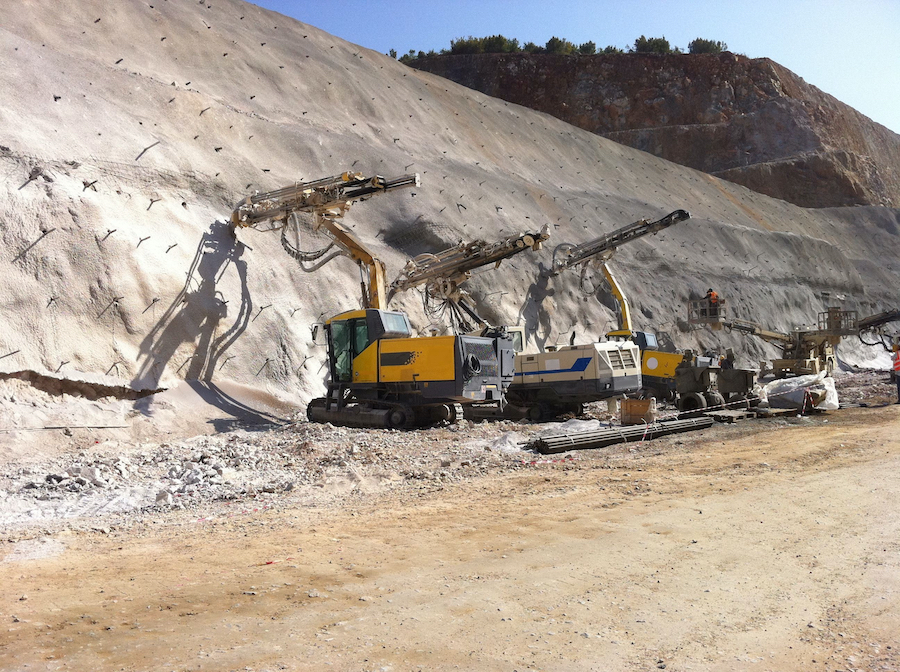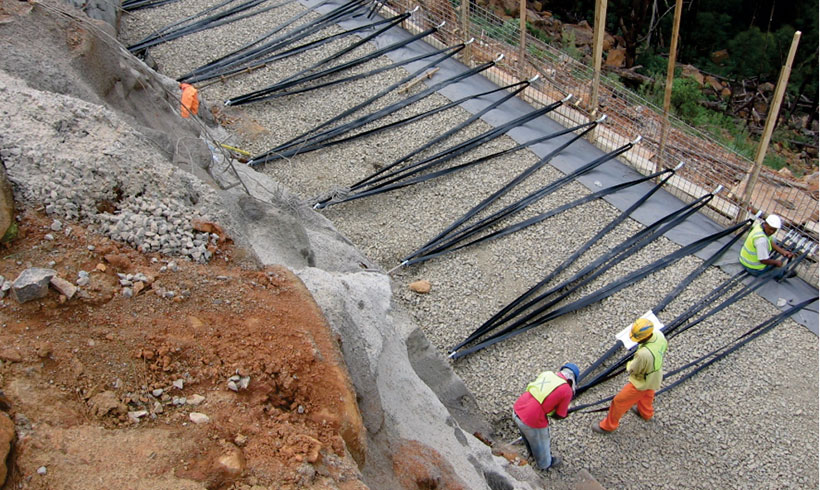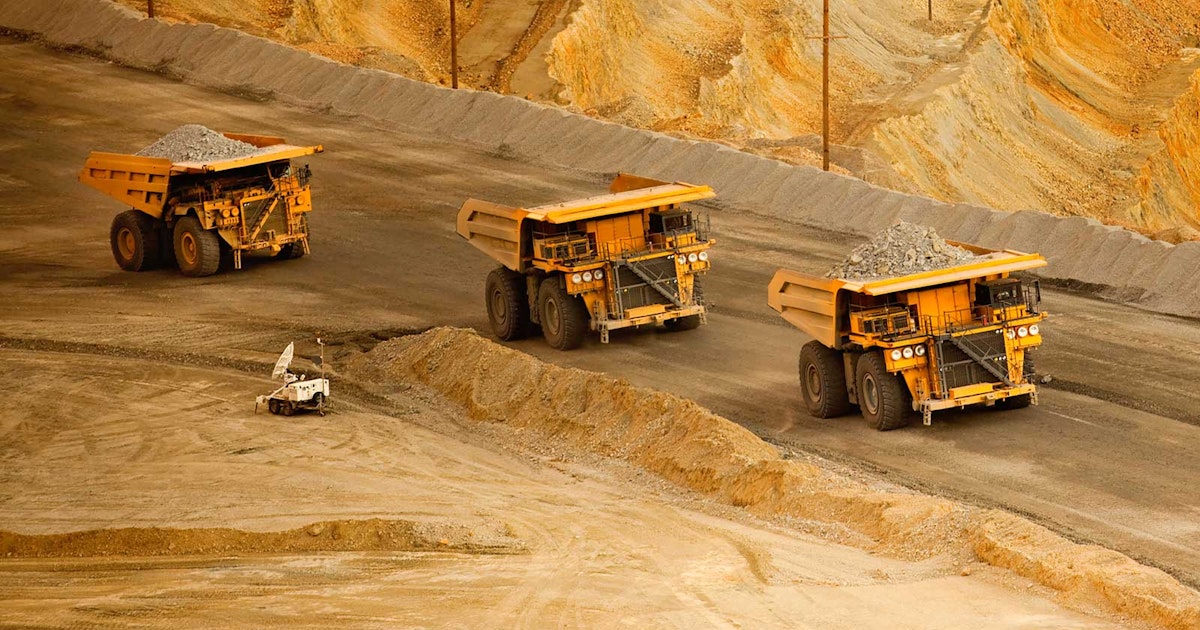A Comprehensive Guide: All About Geotechnical Engineering and Its Applications
A Comprehensive Guide: All About Geotechnical Engineering and Its Applications
Blog Article
The Significance of Geotechnical Engineering in Attending To Environmental Difficulties and Enhancing Construction Safety
Geotechnical design offers as a cornerstone in the junction of ecological stewardship and building and construction safety, giving crucial insights right into the behavior of soil and rock under numerous problems. By implementing critical website investigations and customized mitigation actions, geotechnical engineers play a crucial duty in safeguarding both human lives and eco-friendly integrity.

Duty of Geotechnical Design
Geotechnical design plays an important role in the layout and building of facilities by resolving the habits of dirt and rock materials under different conditions. This area of engineering is vital for understanding the communication in between structures and the ground, that includes figuring out the load-bearing capacity of dirt, evaluating stability, and predicting prospective settlement or failing.
Geotechnical engineers are accountable for performing site investigations, which involve tasting and testing soil and rock to collect information on their chemical and physical properties. This details is essential for designing foundations, preserving wall surfaces, and various other earth-retaining frameworks that ensure safety and longevity. Geotechnical design educates the selection of appropriate building techniques and products, consequently minimizing threats linked with dirt actions.
Furthermore, the assimilation of geotechnical design principles right into urban preparation and ecological management is important for dealing with challenges such as ground contamination and groundwater management. By understanding geotechnical variables, engineers can establish sustainable remedies that enhance the strength of facilities against natural threats, while also promoting ecological stewardship. Inevitably, the duty of geotechnical design is essential for attaining secure, resilient, and ecologically mindful building and construction methods.
Dirt Erosion Reduction
Soil erosion positions a considerable threat to both environmental stability and framework honesty, affecting about 24 billion bunches of abundant soil lost yearly worldwide. This sensation is exacerbated by factors such as deforestation, urbanization, and inadequate farming techniques. Geotechnical engineering plays a critical function in establishing reliable dirt disintegration mitigation strategies that guard both the atmosphere and building and construction jobs.
One strategy entails the execution of disintegration control approaches such as plants planting, which maintains dirt with origin systems. In addition, the building and construction of preserving wall surfaces and terraces can effectively decrease surface drainage and protect at risk locations from disintegration. Correct drainage design is also essential; it decreases water accumulation and routes excess runoff away from essential structures.
Moreover, geotechnical designers utilize dirt stabilization techniques, such as the application of geotextiles and biodegradable mats, to enhance dirt communication and stop degradation - geotechnical specialist. Normal surveillance and analysis of erosion-prone sites make it possible for timely treatments, making sure lasting sustainability. By integrating these approaches, geotechnical engineering not just alleviates the influences of dirt disintegration yet also adds to the strength of facilities versus ecological challenges, ultimately promoting a much safer and more lasting developed atmosphere
Groundwater Defense Techniques
Groundwater works as an important source for alcohol consumption water, farming, and commercial procedures, making its security vital for ecological sustainability and public health. Effective groundwater security approaches are vital in reducing contamination risks and making certain the longevity of this resource.

Regular monitoring of groundwater top quality is likewise necessary, allowing early discovery of contamination sources and assisting in timely remediation initiatives. Employing advanced innovations, such as geophysical surveys and remote picking up, aids in determining possible risks to groundwater books.
Additionally, public education and learning and stakeholder engagement are crucial, promoting neighborhood assistance for groundwater protection initiatives. about geotechnical engineering. By integrating regulatory actions, technical improvements, and area involvement, we can produce an extensive framework that safeguards groundwater sources while advertising lasting advancement and construction practices
Landslide Danger Administration
Landslides position substantial risks to both human safety and framework, making reliable threat administration strategies necessary. Geotechnical design plays an essential function in identifying, evaluating, and mitigating landslide risks. A comprehensive understanding of incline security, soil technicians, and hydrology is essential for establishing effective risk management plans.
The initial action in landslide danger monitoring entails comprehensive site examinations, which consist of geological mapping and soil screening. These examinations assist engineers evaluate the possibility for landslides by recognizing critical variables such as slope angles, soil structure, and water web content. Making use of advanced modern technologies such as remote noticing and geophysical studies can boost the accuracy of these assessments.
As soon as threats are identified, appropriate mitigation procedures can be carried out. These may consist of engineering remedies such as keeping wall surfaces, drainage systems, and slope stablizing strategies. Monitoring systems need to be developed to find indicators of ground motion and changes in water degrees, enabling for positive treatments.

Enhancing Construction Security
Construction sites commonly offer a myriad of hazards that can jeopardize worker safety and task integrity. Geotechnical engineering plays an essential function in boosting building security by supplying vital understandings right into subsurface problems. Through extensive soil and rock analysis, my site geotechnical engineers can determine prospective risks, such as dirt instability, groundwater issues, and seismic vulnerabilities, which might compromise the safety and security of building tasks.
Implementing geotechnical options, such as correct structure style and the use of keeping frameworks, alleviates these threats considerably. These solutions not just ensure the security of the structures being built yet additionally create a safer working setting for building employees.
In addition, promoting a culture of security through training and adherence to established safety methods further enhances building site security. By integrating geotechnical knowledge into the preparation and execution stages, building projects can accomplish higher safety and security requirements, ultimately protecting employees and guaranteeing effective job completion.
Verdict
Finally, geotechnical engineering offers as a critical self-control in tackling ecological challenges and promoting building safety. Via reliable dirt erosion reduction, groundwater protection strategies, and landslide danger management, geotechnical designers add to the development of resistant framework. The integration of these methods cultivates a safer building and construction environment and improves the sustainability of civil design projects. Ultimately, the competence of geotechnical designers is crucial in securing both natural deposits and human lives against possible hazards.
Geotechnical engineering serves as a cornerstone in the intersection of environmental stewardship and building security, supplying critical insights into the habits of dirt and rock under numerous conditions. Geotechnical engineering notifies the option of suitable building and construction techniques and materials, consequently minimizing threats connected with dirt habits.
Geotechnical design plays a pivotal function in establishing efficient soil erosion reduction approaches that guard both the atmosphere and construction jobs.
Furthermore, geotechnical engineers employ soil stabilization strategies, such as the application of geotextiles and eco-friendly floor coverings, to enhance dirt cohesion and avoid deterioration. go to this web-site With extensive soil and rock visit this site evaluation, geotechnical engineers can identify potential risks, such as dirt instability, groundwater concerns, and seismic susceptabilities, which may compromise the safety of construction activities.
Report this page